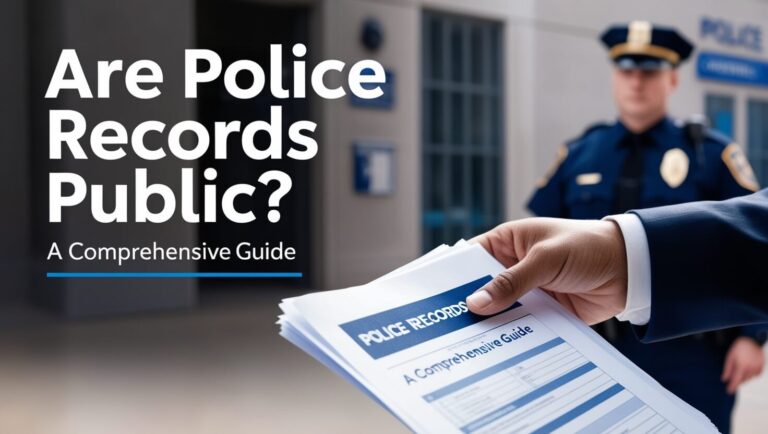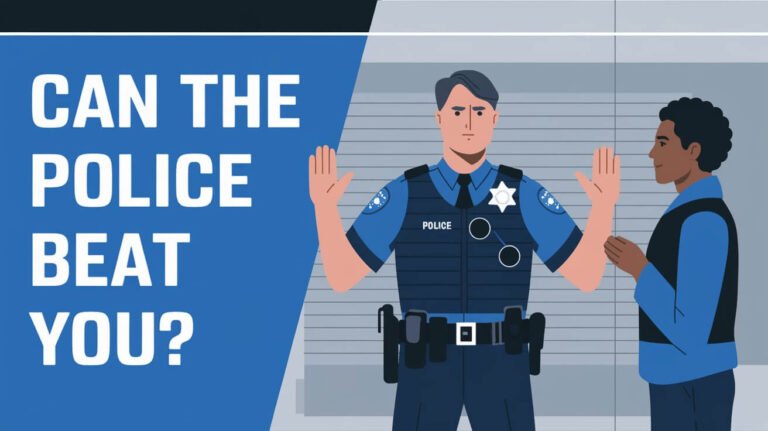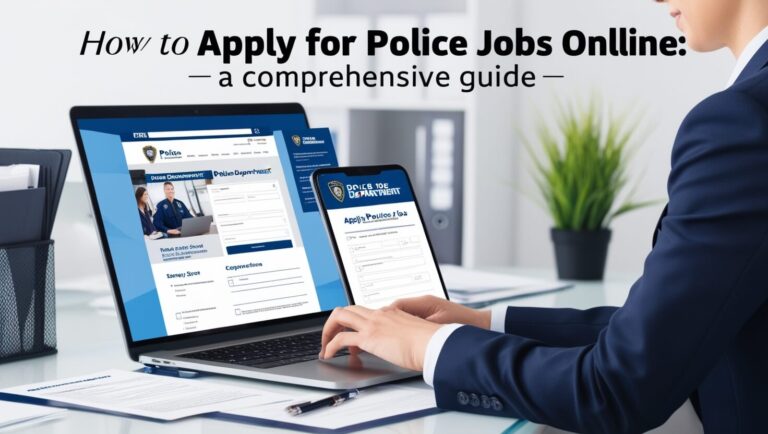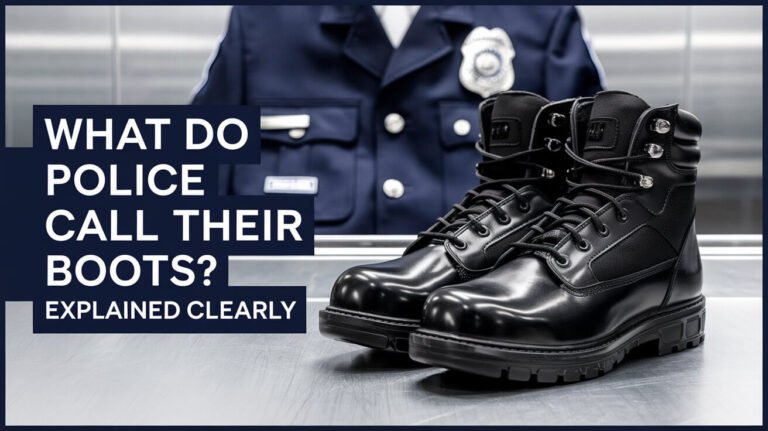What Do Police Say When They Arrest You? Know Your Rights
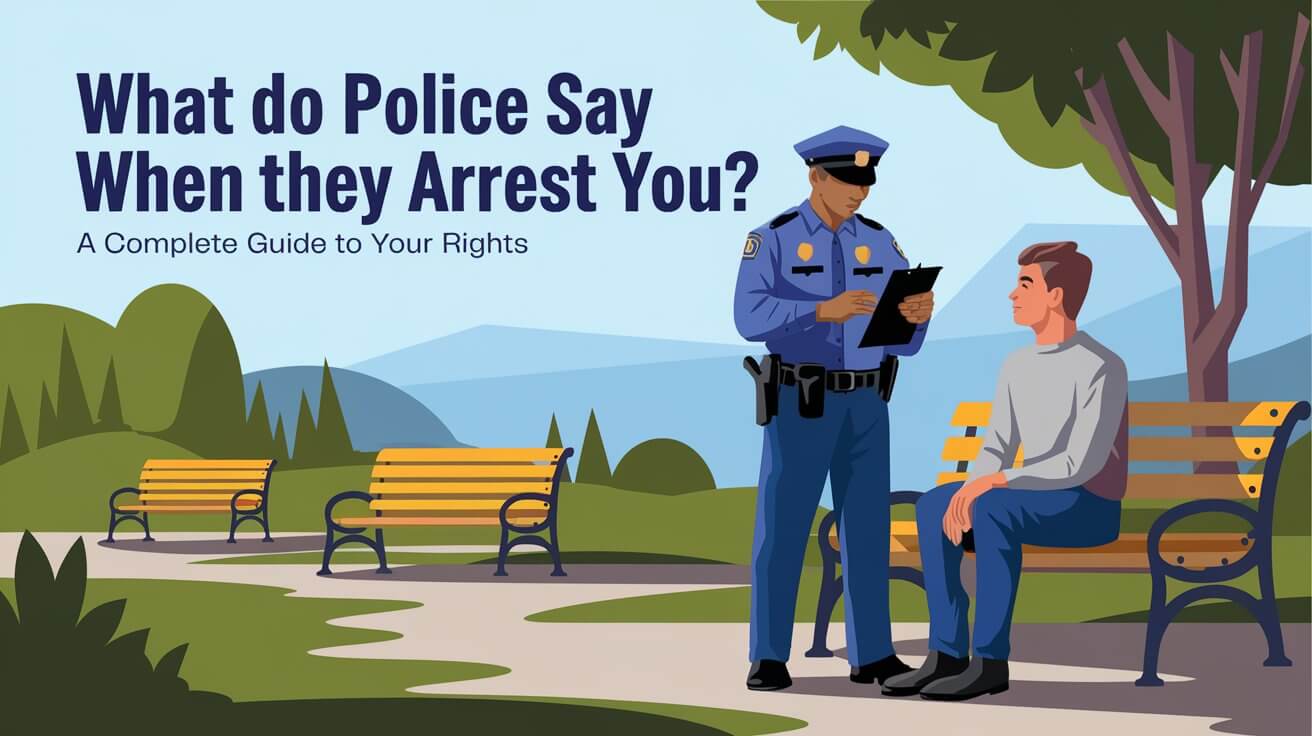
When the police arrest you, they must say specific things to ensure your rights are protected. The key phrases police must say during an arrest include informing you that you’re under arrest, explaining the reason for the arrest, and reading you your Miranda rights.
Police arrests can be stressful and confusing. Knowing what to expect can help you stay calm and protect your rights. This guide covers everything you need to know about what police say during an arrest, from the moment they approach you to your arrival at the police station.
The Moment of Arrest: Key Phrases Police Must Use
“You’re Under Arrest”
The first thing police officers must tell you is that you’re under arrest. They need to make it clear that you’re not free to leave. This simple phrase sets the tone for the entire interaction.
Officers might say:
- “You’re under arrest.”
- “I’m placing you under arrest.”
- “You’re being arrested.”
Explaining the Reason for Arrest
After informing you of the arrest, police must tell you why they’re arresting you. They need to specify the crime they believe you’ve committed. This information helps you understand the situation and prepares you for what’s to come.
Examples of what officers might say:
- “You’re under arrest for shoplifting.”
- “I’m arresting you on suspicion of drunk driving.”
- “You’re being arrested for assault.”
Identifying Themselves as Law Enforcement
If it’s not already obvious, police officers must identify themselves. This is especially important if they’re not in uniform or if the arrest happens in an unexpected place.
Officers might say:
- “I’m Officer Smith with the City Police Department.”
- “This is Detective Johnson from the County Sheriff’s Office.”
Your Miranda Rights: What Police Are Required to Tell You
After informing you of the arrest and the reason, police must read you your Miranda rights. These rights protect you from self-incrimination and ensure you understand your legal options.
The Right to Remain Silent
Police must tell you that you have the right to remain silent. This means you don’t have to answer any questions beyond providing basic identifying information.
Officers typically say: “You have the right to remain silent.”
Anything You Say Can Be Used Against You
Next, they’ll warn you that anything you say can be used as evidence in court. This reminds you to be careful about what you say after the arrest.
The standard phrasing is: “Anything you say can and will be used against you in a court of law.”
The Right to an Attorney
Police must inform you of your right to have an attorney present during questioning. This is a crucial protection to ensure you have legal representation.
Officers will say something like: “You have the right to talk to a lawyer and have them present with you while you’re being questioned.”
Having an Attorney Appointed If You Can’t Afford One
Lastly, they must tell you that if you can’t afford a lawyer, one will be appointed for you. This ensures that everyone, regardless of financial status, has access to legal representation.
The typical phrasing is: “If you cannot afford to hire a lawyer, one will be appointed to represent you before any questioning if you wish.”
Beyond Miranda: Additional Information Police May Provide During Arrest
While the Miranda rights are the most well-known, police often provide additional information during an arrest.
Cautions About Resisting Arrest
Officers may warn you about the consequences of resisting arrest. This isn’t required, but it’s common practice to prevent escalation.
They might say: “Don’t resist. Resisting arrest is a separate crime and can result in additional charges.”
Instructions for Complying with the Arrest
Police will often give you specific instructions on how to comply with the arrest. These instructions help keep both you and the officers safe.
Examples include:
- “Put your hands behind your back.”
- “Turn around slowly.”
- “Walk towards the police car.”
What Police Say When Arresting Minors
The arrest process for minors (under 18) involves additional steps and considerations.
Contacting Parents or Guardians
When arresting a minor, police must inform them that they’ll contact their parents or guardians. This ensures that a responsible adult is aware of the situation.
Officers might say: “We’re going to contact your parents to let them know what’s happening.”
Special Considerations for School Arrests
If the arrest happens at school, police should try to minimize disruption and protect the minor’s privacy. They might say something like: “We need you to come with us. We’ve already spoken to your principal.”
The Arrest Process: What Happens After the Initial Statement
Once the initial arrest statements are made, the process continues with transportation and booking.
Transportation to the Police Station
Officers will explain that you’re being taken to the police station. They might say: “We’re taking you to the Central Police Station for processing.”
Booking Procedures and What to Expect
At the station, you’ll go through the booking process. Officers typically explain this process briefly: “You’ll be fingerprinted and photographed, and we’ll take some basic information from you.”
Your Rights During the Arrest: What You Need to Know
Understanding your rights during an arrest is crucial for protecting yourself legally.
The Right to Know Why You’re Being Arrested
You have the right to know the specific charges against you. If the police haven’t told you, you can ask: “What exactly am I being charged with?”
When Police Can Use Force During an Arrest
Police can use reasonable force to make an arrest if you resist. However, they should verbally warn you before using force: “If you don’t comply, we’ll have to use force to arrest you.”
Your Right to Refuse Searches
You have the right to refuse consent to a search, but police may still have the authority to search you incident to arrest. They should inform you of this: “We’re going to conduct a search incident to arrest. You don’t have to consent, but we have the authority to do this search.”
Common Scenarios: What Police Say in Specific Arrest Situations
Arrest procedures can vary slightly depending on the situation.
Traffic Stop Arrests
During a traffic stop arrest, officers might say: “Please step out of the vehicle. You’re under arrest for [reason].”
Home Arrests
When arresting someone at home, police typically announce their presence: “Police! We have a warrant for [name]’s arrest. Open the door!”
Public Place Arrests
In public, officers often try to be discreet: “Sir/Ma’am, you need to come with us. You’re under arrest.”
International Perspectives: Arrest Procedures in Different Countries
Arrest procedures can vary internationally, but most democratic countries have similar protections.
UK Arrest Procedures
In the UK, officers must say: “You do not have to say anything, but it may harm your defence if you do not mention when questioned something which you later rely on in court. Anything you do say may be given in evidence.”
Canadian Arrest Procedures
Canadian officers must inform arrestees of their right to counsel: “You have the right to retain and instruct counsel without delay.”
Australian Arrest Procedures
In Australia, the caution is similar to the UK: “You have the right to remain silent. Anything you say may be used in evidence. Do you understand?”
Wrongful Arrests: What to Do If Police Don’t Follow Proper Procedures
If you believe your arrest is unlawful or procedures weren’t followed, stay calm and document everything.
Identifying an Unlawful Arrest
An arrest might be unlawful if:
- Police don’t have probable cause
- They use excessive force
- They fail to inform you of your rights
Steps to Take If Your Rights Are Violated
If you believe your rights were violated:
- Stay calm and don’t resist
- Remember details of the incident
- Ask for a lawyer immediately
- File a complaint after the fact
The Importance of Remaining Calm: How to Respond When Police Are Arresting You
Staying calm during an arrest is crucial for your safety and legal protection.
Do’s and Don’ts During an Arrest
Do:
- Stay calm and polite
- Clearly state that you wish to remain silent
- Ask for a lawyer
Don’t:
- Resist arrest
- Argue with the officers
- Volunteer information
Protecting Your Legal Rights Without Escalating the Situation
You can assert your rights without being confrontational: “I’m going to remain silent and I’d like to speak to a lawyer.”
After the Arrest: Next Steps in the Legal Process
Understanding what happens after the arrest can help reduce anxiety and prepare you for next steps.
What Happens at the Police Station
At the station, you’ll go through:
- Booking (fingerprints, photos, personal information)
- Possibly an interview (remember your right to remain silent)
- Detention or release on bail
Your Rights During Questioning
During questioning:
- You have the right to remain silent
- You can ask for a lawyer at any time
- You can refuse to answer questions even if you’ve started talking
The Importance of Legal Representation
Having a lawyer is crucial. They can:
- Advise you on what to say (or not say)
- Ensure your rights are protected
- Start building your defense
Remember, police must inform you of your right to an attorney. Use this right!
Conclusion: Empowering Yourself with Knowledge of Arrest Procedures
Knowing what police say when they arrest you is more than just interesting trivia – it’s a vital part of understanding and protecting your rights. From the moment an officer says “You’re under arrest,” through the reading of Miranda rights, to your arrival at the police station, every step of the process has specific rules and procedures.
By familiarizing yourself with these procedures, you’re better equipped to navigate a stressful situation calmly and protect your legal rights. Remember, the key things police must say when they arrest you are that you’re under arrest, why you’re being arrested, and your Miranda rights.
Stay informed, stay calm, and if you’re ever in this situation, remember that you have the right to remain silent and the right to an attorney. These rights are your strongest protections in the face of an arrest.

